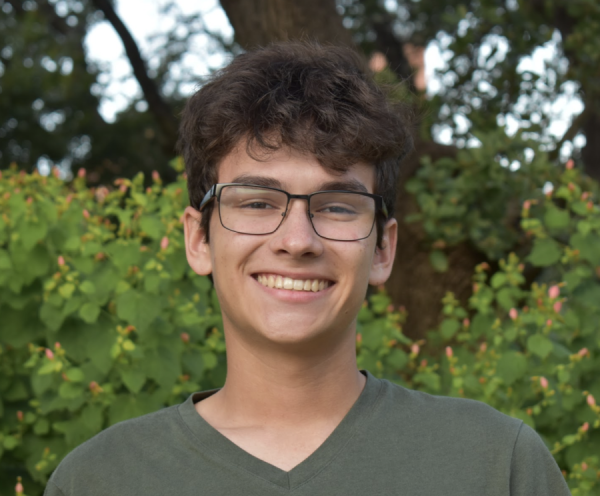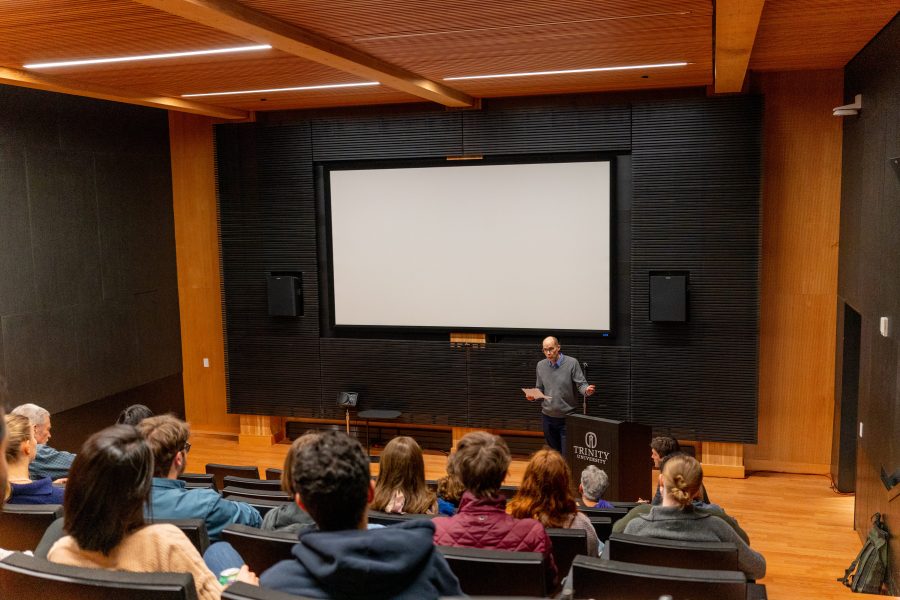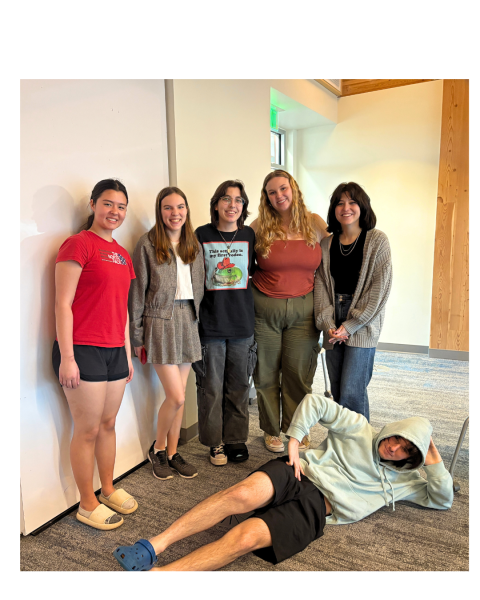Expanding the scope of French studies
French film festivals and partnership with Alliance Française de San Antonio mark a new era for Trinity’s French program
Professor Patrick Keating gives an introduction before the film begins.
Francophones, Francophiles, cinephiles and enjoyers of La Croix are all welcome on Friday, April 7 to the second installment of the French film festival for a screening of the 1953 film “Madame de…” — provided that you répondez s’il vous plaît (RSVP). A collaborative effort between Trinity’s French department and the Alliance Française de San Antonio, the festival aims to foster appreciation for French cinema and give students an opportunity to connect with the San Antonio community.
The Alliance Français is a volunteer-run organization focused on providing its members with opportunities to experience and appreciate French culture. In addition to offering all levels of French classes, it also seeks to cultivate a community that can bond over their shared interests. Michael “Mitch” Millar, membership coordinator for San Antonio’s chapter of the Alliance, said,
“In San Antonio, you’re really not alone. You can join [Alliance Française] and start going to functions and meet people who also enjoy the language.”
The inaugural screening for the French film festival took place earlier this semester, but the roots of Trinity’s partnership with Alliance Française go back to before the pandemic. Plans for a collaboration had been put on hold during COVID, and were revitalized this fall when French professors Maxence Leconte and Alan Astro were contacted by the Alliance. Soon, an event, which the groups quickly decided would involve cinema, was in the works.
“[It’s] a partnership through culture and the arts in general,” Leconte said. “[The Alliance] would invite the greater San Antonio community, and we would provide a space to encourage the appreciation of the French arts through specifically cinema.”
An external partnership with the Alliance Française is also an indicator of internal changes to the French curriculum at Trinity, which is seeking to become more culturally rounded. The goal, Leconte explains, is to transition the program from “French” to “French Studies.”
“We’ve added courses from outside the department that will now count for French minors and French majors,” Leconte said. “There are professors in the history department that teach a class on the history of Paris, and to us it seemed very obvious that these should count as credits for French minors and majors.”
In addition to classes from the history department, certain classes from the art history, communication and comparative literature departments that relate to French history and culture will also count as French studies credits starting next in the academic year. The French film festival is also set to continue next year with screenings every other month. Leconte said he hopes the event will gain traction going forward, and especially looks forward to inviting guest speakers to introduce and contextualize the films.
Between 40 and 50 people attended the first French film festival screening of the 2005 drama “Caché” (“Hidden”), which was introduced by French professor — who, according to Leconte, is Trinity’s “resident expert in French cinema.”
Ekstein encouraged the audience to pay attention to certain details and ponder the meaning of the title and the final scene, causing many to stay and discuss the film afterward.
Exposure to media that can be difficult to access is also a benefit of these screenings, says Ekstein. “The good stuff isn’t on Netflix, Hulu or Amazon. I don’t think HBO has a great set of French foreign films either.”
Ekstein has been able to access the films she wants to see by requesting them from people in charge of ordering media for libraries, but for most people it’s often not that simple.
“Whenever a professor asks, they’ll order it, but our students can’t watch any of those films. I can recommend good films from the library, but you’re not going to want to go to the library and sit in front of a computer for two hours,” Ekstein said.
Nathaniel Roe, an undeclared first-year in attendance, heard about the festival in his French class. He says he decided to go because he doesn’t often get to see foreign films.
“I like to know about what I’m not exposed to actively, you know … see what else is out there,” Roe said.
It’s taken many people and organizations to get the French film festival up and running, but it seems to have been worth it. The festival, as well as the new focus on cultural immersion and education in Trinity’s French department are giving many students a way to breach the Trinity bubble and connect with members of the San Antonio community. These connections are essential not only to students majoring and minoring in French, but to any student wishing to enhance their education, Leconte said.
“You can never learn anything in a vacuum.”

My name is Sam (he/him) and I'm a photographer here with the Trinitonian. I'm a senior Communications and German double major from Austin, Texas, and...






